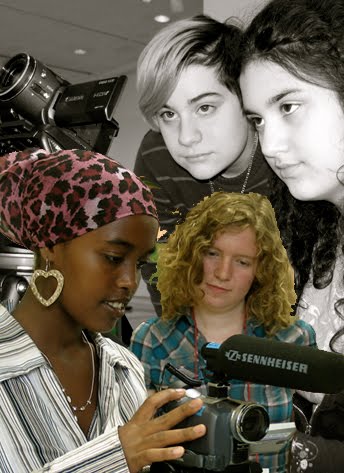
Filmmaker Unearthed:
Caribbean Waves
Do you know who the first black female filmmaker to direct a Hollywood studio film was?
“…Our job is to bring things on screen, to make people laugh, to entertain them, but also to make them think and to inform them about what is going on in the world. They won’t be able to say we didn’t know what was going on.”
– Euzhan Palcy

Euzhan Palcy
(1958- )
Palcy was born in 1958 in Martinique, French West Indies. Since she was a tween, Euzhan knew she wanted to be a filmmaker in order to give blacks a voice in media. She remembers watching movies from Hollywood that made her angry because blacks were depicted negatively. So she took matters into her own hands and decided to make films. Euzhan published poetry and mystery in a monthly publication in Martinique and wrote, directed and acted in a drama for the television station before going to get her masters in Paris.
There in France she met her “French Godfather,” the famous director Francois Truffaut, and he encouraged her with her endeavors to make her first feature Sugar Cane Alley (1983) (it was also the first feature made in Martinique). To raise money for the film Palcy received a grant from the French government and went to Martinique to promote the project. Mayors from different cities in Martinique gave money as well as individual people who gave what they could to help fund the film. Sugar Cane Alley (1983) won awards and so did her next film A Dry White Season (1989) which was about the South African apartheid. This film concerned a heated topic that was hot enough to make Euzhan have a bodyguard during the filming. The project took seven years to raise money and finish. She was the only female director to work with Marlon Brando and was able to get him to come out of partial retirement to act in the film.
From there Palcy broadened her to include other genres and types of projects. She enjoys making films that make viewers think and have a point to share with the audience.
Question:
Palcy works toward giving a voice to blacks in media, which brings me to my question. Do you think a filmmaker can accurately portray a gender/race/culture different from her or his own in a film? Why do you think what you think and how is it possible or not?
References:
Image of Palcy from Images of Black Women http://www.imagesofblackwomen.com/euzhan.htm
Image of lamp by Boby Dimitrov
“Images of Black Women Film Festival.” International Patron: Euzhan Palcy. 1.13.11.http://www.imagesofblackwomen.com/euzhan.htm.
Paddington, Bruce. “Making Waves.” Caribbean Beat. Issue No. 1 (1992). 1.13.11. http://www.meppublishers.com/online/caribbean-beat/archive/index.php?pid=6001&id=cb1-2-4.
Rickards, Colin. “Caribbean People: Filmmaker Euzhan Palcy gives back.” July 15, 2009. 1.13.11. http://www.trulycaribbean.net/?p=1334.


No comments:
Post a Comment